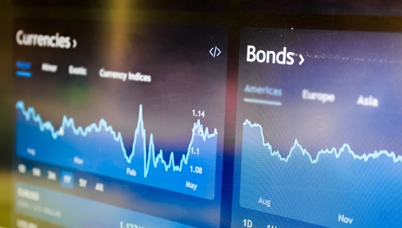Bank deposit interest rates may stay steady for now
Posted On Monday, Aug 25, 2014
When it comes to your investments, one of your favorite investment avenues could be bank deposits. The RBI’s decision to cut rates can directly affect your bank deposit’s interest. Therefore affecting what you get at the end of the deposit term.
One of the major factors that influences the RBI to either cut or raise rates is inflation. Given the scenario today it could be that your bank deposits might continue to float on the current wave of interest rates; based on RBI’s expectations of inflation levels in the coming years.
Policy makers and political commentators have been continuously saying inflation will come down. This demand (for lower inflation) is particularly strong from the industrialists lobby that benefit from negative real interest rates as they are big borrowers from the financial system.
However, the 36th RBI quarterly ( April- June) inflation expectation survey done on 4,931 household covering 16 cities conveys an inflation expectation of 14 % in three month period and 15 % over a one year period (source: RBI Inflation expectation survey of household report). This trend of higher inflation expectations from household have been the standard feature over the last two years. The reasons for these discrepancies may be because of the higher weightage which the consumers are spending on education, medical, vegetables and fruits. The total weightage for these items are 3.35 %, 5.69 %, 5.44 %, 1.89 % respectively. Unsurprisingly, the highest inflation expectations are felt by the pensioners and daily wage earners, who spend a higher percentage in food items, medicines and on education.
The CPI (Consumer Price Index) inflation data has been captured from January 2011 and fruits and vegetables which do not have any Minimum support prices have shown the highest increase apart from milk products. The compounded year on year increase in fruits and vegetables are in the range of 15 % and medical and education is in the range of 8% to 10 % levels over a 3 year period. Fruits and vegetables prices have therefore shown a permanent increase over a period of time;contrary to the expectation that prices of fruits and vegetables would correct over a period of time since they are not controlled by the government.
RBI wants to bring inflation down to 8 % levels by 2015 and to 6 % levels by 2016 (source: Urjit Patel report). In my view the 8 % levels look achievable by January 2015 as crude oil prices are lower and the rupee is expected to be stable in the range of 60 to 62 against the dollar. This could mitigate the effect of high vegetables and fruit prices. Housing prices and rentals are also expected to stabilize in the current financial year as record inventory of 7,64,000 units remained unsold in the system.
However, for the CPI inflation to come down to 6 % levels by January 2016 looks difficult as there is continuous increase in minimum support prices on rice and wheat. The food basket which constitutes 59.31% of CPI inflation has experienced compounded inflation of around 10 % in the last two years. The other items of expenditure like education and medicals are also expected to increase at a rate of more than 6 % in the coming years due to higher income levels and the propensity of the population to consume these items.
The RBI governor has on record stated the target of 6 % in CPI looks difficult and the scope for RBI to cut rates would depend on the expected trajectory of inflation by January 2016 (source: monetary policy statement, Aug 2nd). RBI would like to keep the monetary policy relatively tight and give some positive returns to the investors to anchor inflation expectations. The next target on inflation which RBI wants is 4 % +/- 2 % levels by January 2017. For achieving these inflation targets, there is a need to keep real interest rates positive for the investors. The expectation is government to stimulate production of food grains would be increasing MSP on a yearly basis. This would mean the CPI inflation to sustain below 6 % levels on a continuous basis looks difficult.
This could keep RBI from reducing repo rates aggressively. I am of the view that while banks could still independently decide to lower the rates they offer to customers, it most likely looks like the interest rate of your deposits might not dip significantly from the current levels, since the idea from the RBI seems to be that if inflation is raising prices of goods, then the interest one earns should at least be maintained at a level where food items remain affordable. I am of the view; if inflation is on the rise, then interest rates could continue to remain at their current levels.
Source: RBI
The views expressed here in this article are for general information and reading purpose only and do not constitute any guidelines and recommendations on any course of action to be followed by the reader. The views are not meant to serve as a professional guide / investment advice / intended to be an offer or solicitation for the purchase or sale of any financial product or instrument or mutual fund units for the reader. The article has been prepared on the basis of publicly available information, internally developed data and other sources believed to be reliable. Whilst no action has been solicited based upon the information provided herein, due care has been taken to ensure that the facts are accurate and views given are fair and reasonable as on date. Readers of this article should rely on information/data arising out of their own investigations and advised to seek independent professional advice and arrive at an informed decision before making any investments. Please visit – www.quantumamc.com/disclaimer to read scheme specific risk factors.
Related Posts
-

Equity Monthly for July 2025
Posted On Monday, Jul 07, 2025
The market continued the upward trajectory with BSE Sensex gaining by 3.0%. The BSE mid and small cap indices rose by 3.9% and 4.4% respectively.
Read More -

Debt Monthly for July 2025
Posted On Monday, Jul 07, 2025
Flashpoint Middle East: War, Oil, and the Strait of Hormuz Risk: In June 2025, the Israel-Iran conflict erupted into full-scale war, sparking widespread geopolitical instability.
Read More -

Gold Monthly for July 2025
Posted On Wednesday, Jul 02, 2025
We are already halfway through 2025, and it will be safe to look back and say, ‘It was all Yellow’
Read More



